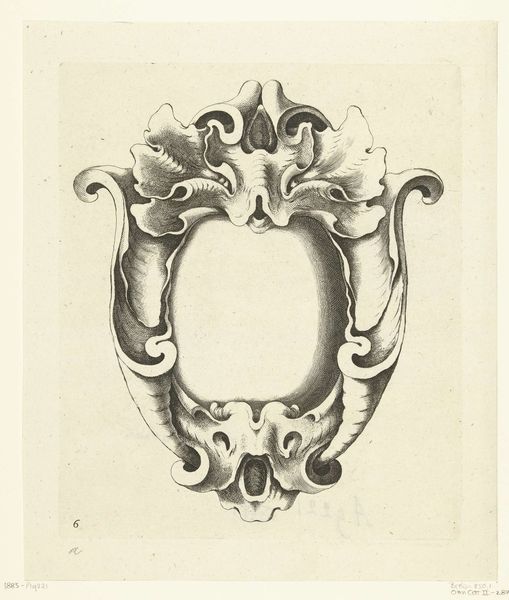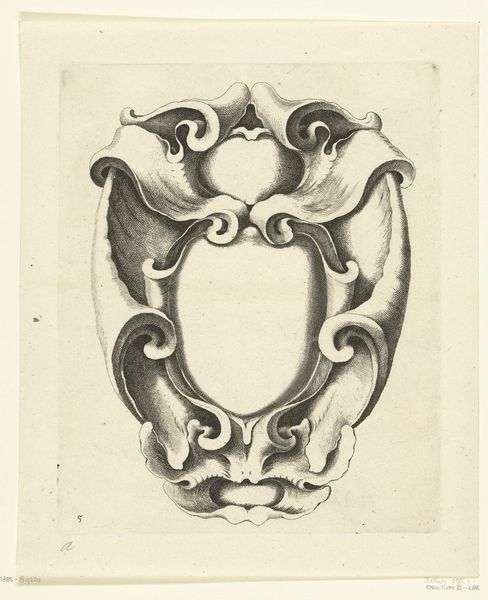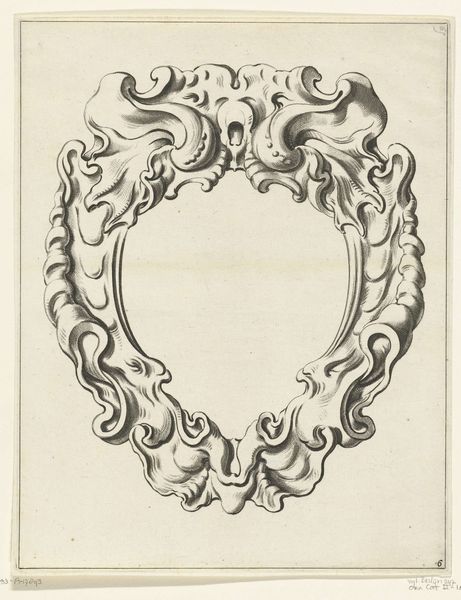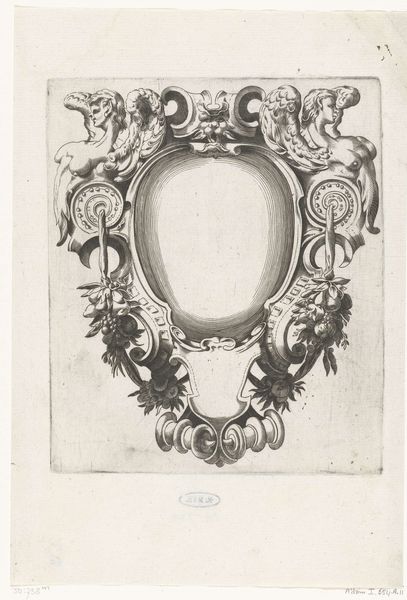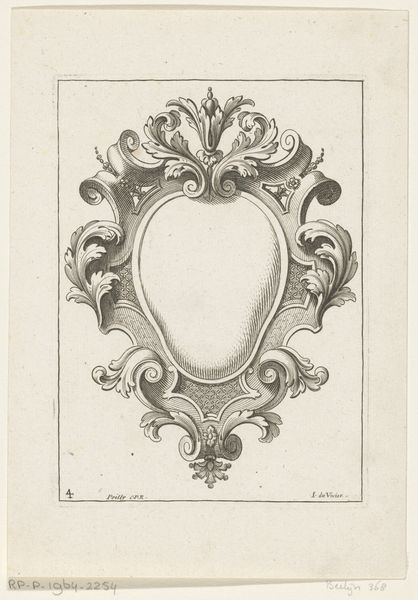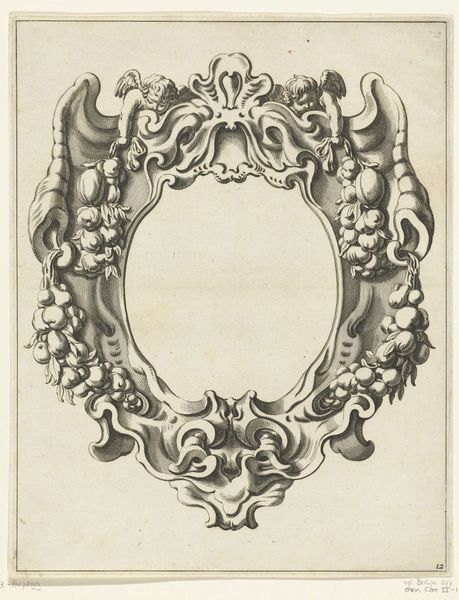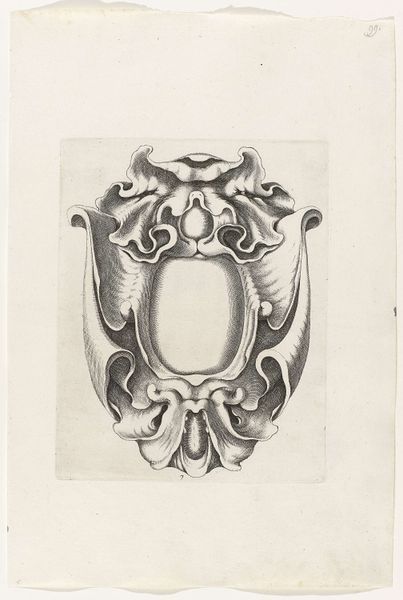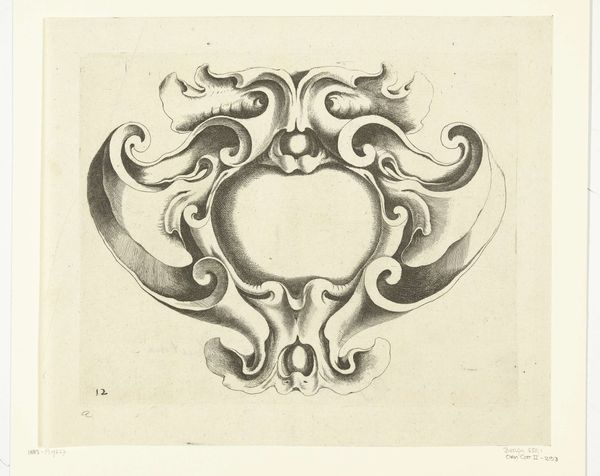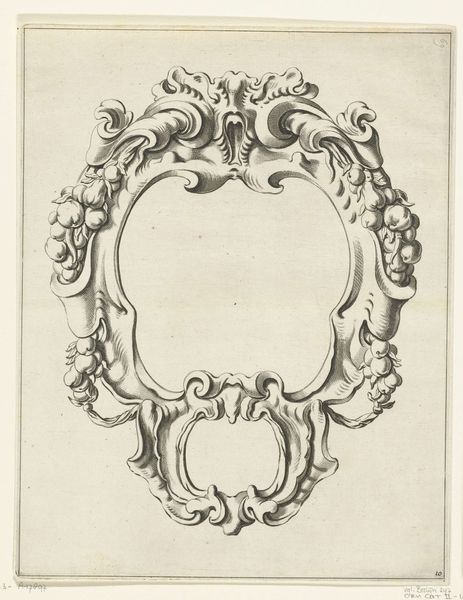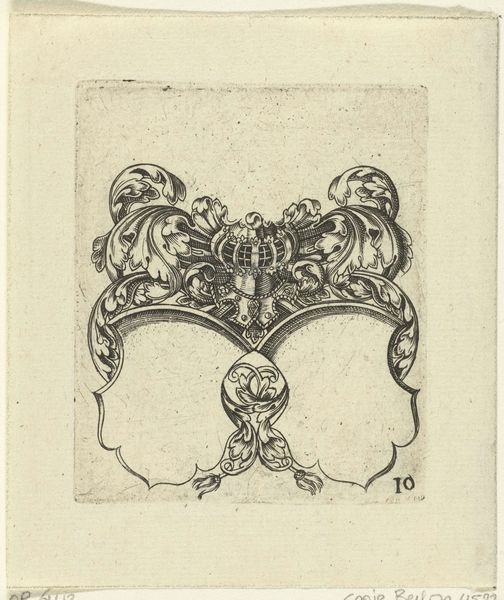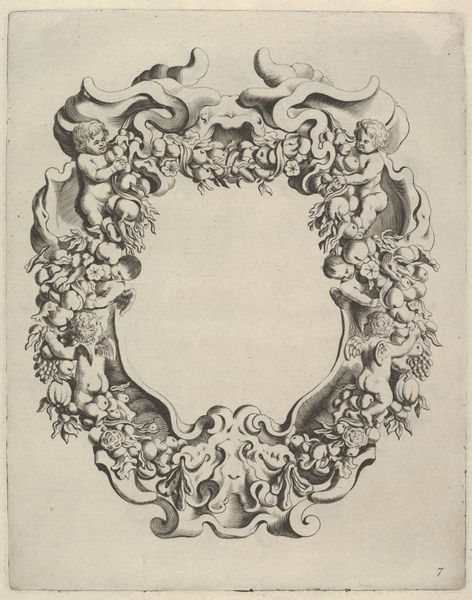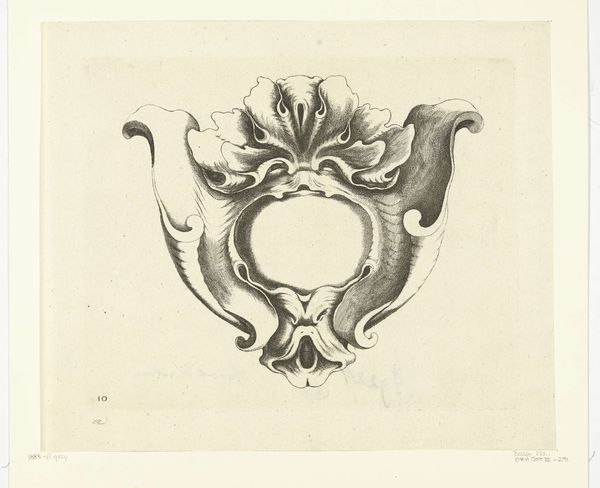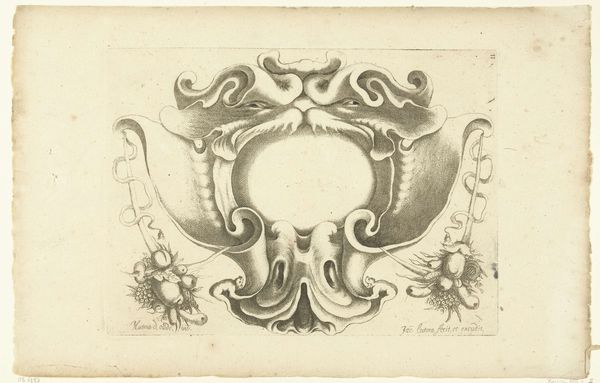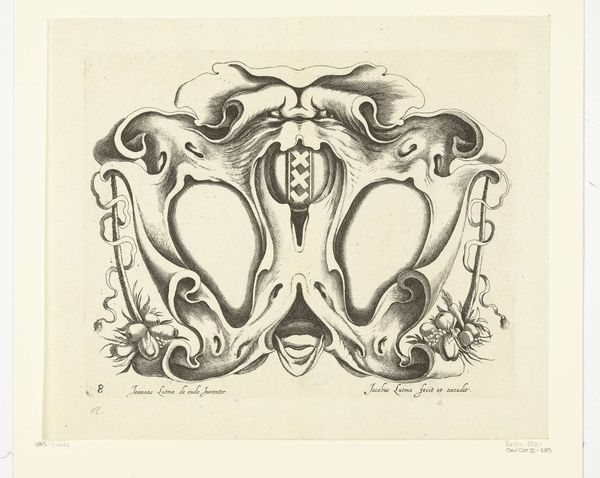
drawing, print, engraving
#
drawing
#
baroque
# print
#
pencil sketch
#
old engraving style
#
form
#
geometric
#
pen-ink sketch
#
line
#
engraving
Dimensions: height 221 mm, width 180 mm
Copyright: Rijks Museum: Open Domain
This is Jacob Lutma's "Cartouche met een groot en een klein compartiment," made sometime in the mid-17th century. Lutma was working in a Dutch Republic that was beginning to enjoy its Golden Age, a period defined by unprecedented economic growth and cultural flourishing. This print shows an ornamental frame, a cartouche, its elaborate decorations reflecting the Baroque style that privileged dynamism and drama. But beyond its function as a decorative element, what statements were the artists making by depicting this object? The Baroque was employed by the Catholic Church, but it was also employed by the wealthy merchant classes of the Dutch Republic. It served as a testament to their status, wealth, and worldliness. But perhaps it also speaks to the complex relationship between art and commerce, or the ways in which art can be used to create and reinforce social hierarchies. Frames like this can be both beautiful and imposing, inviting contemplation while simultaneously asserting a particular kind of power.
Comments
No comments
Be the first to comment and join the conversation on the ultimate creative platform.
